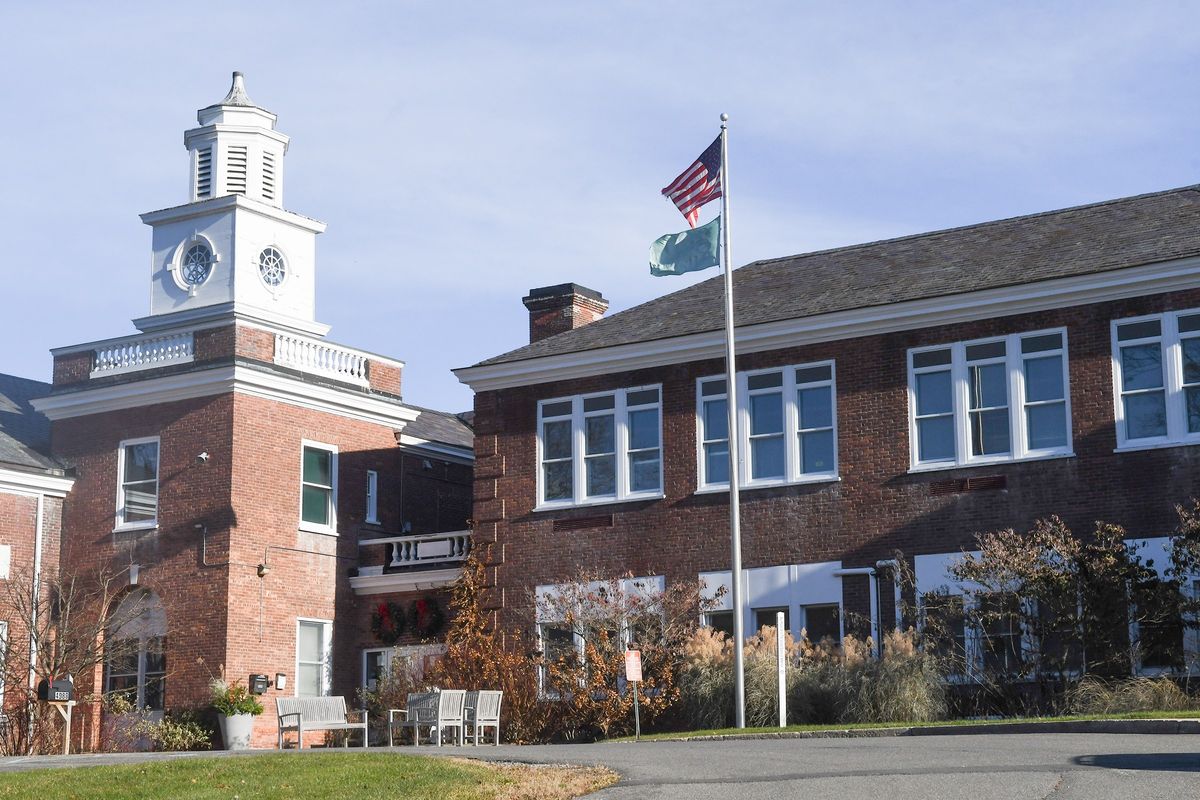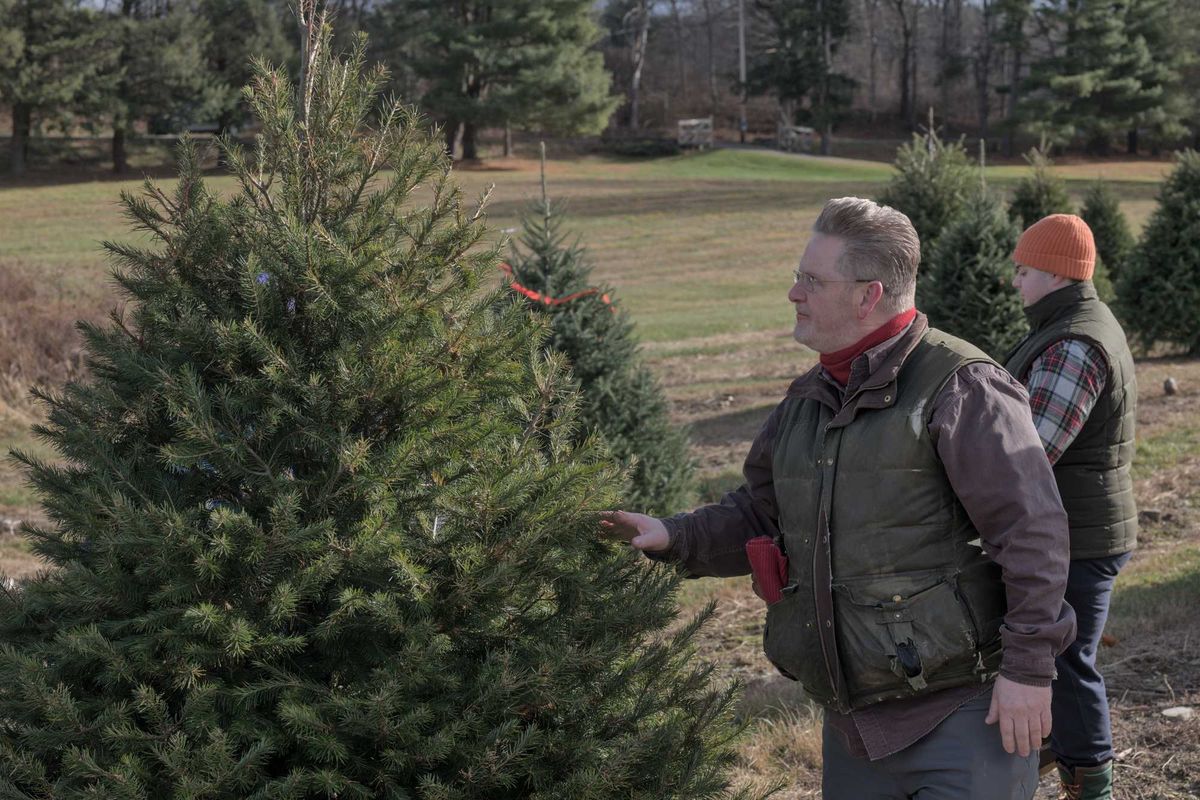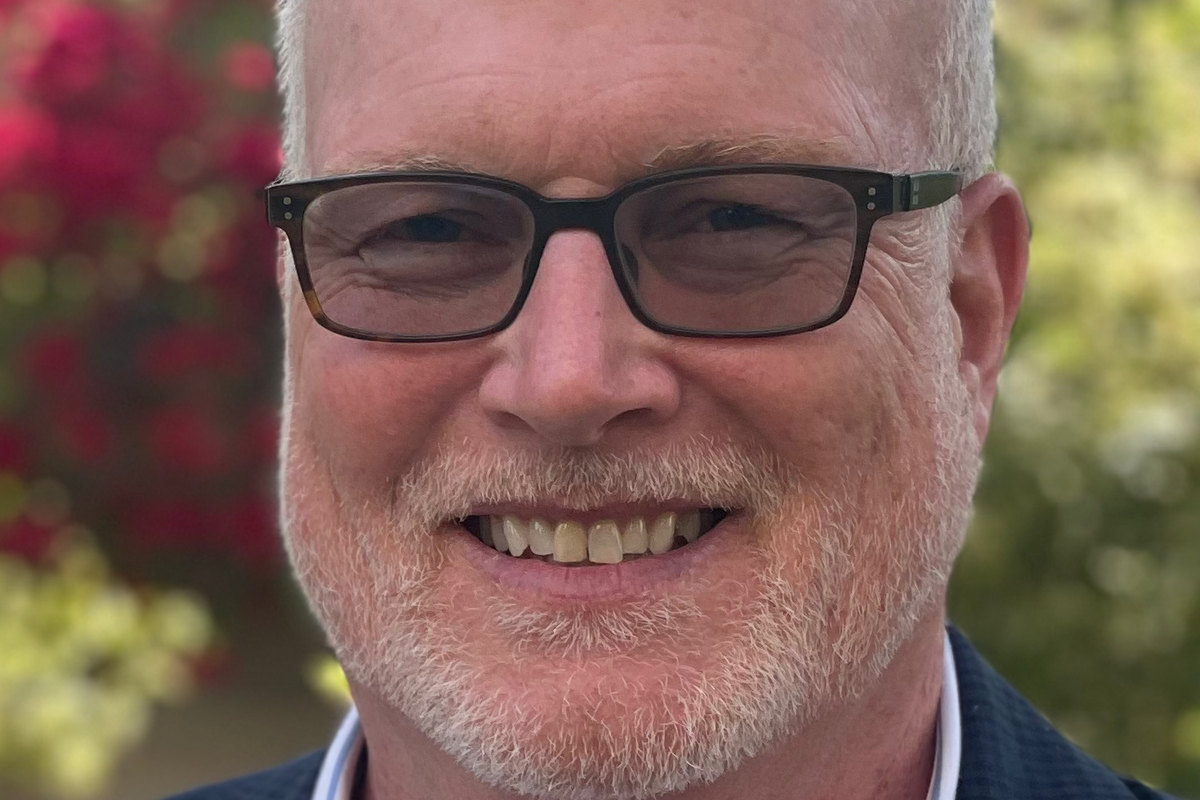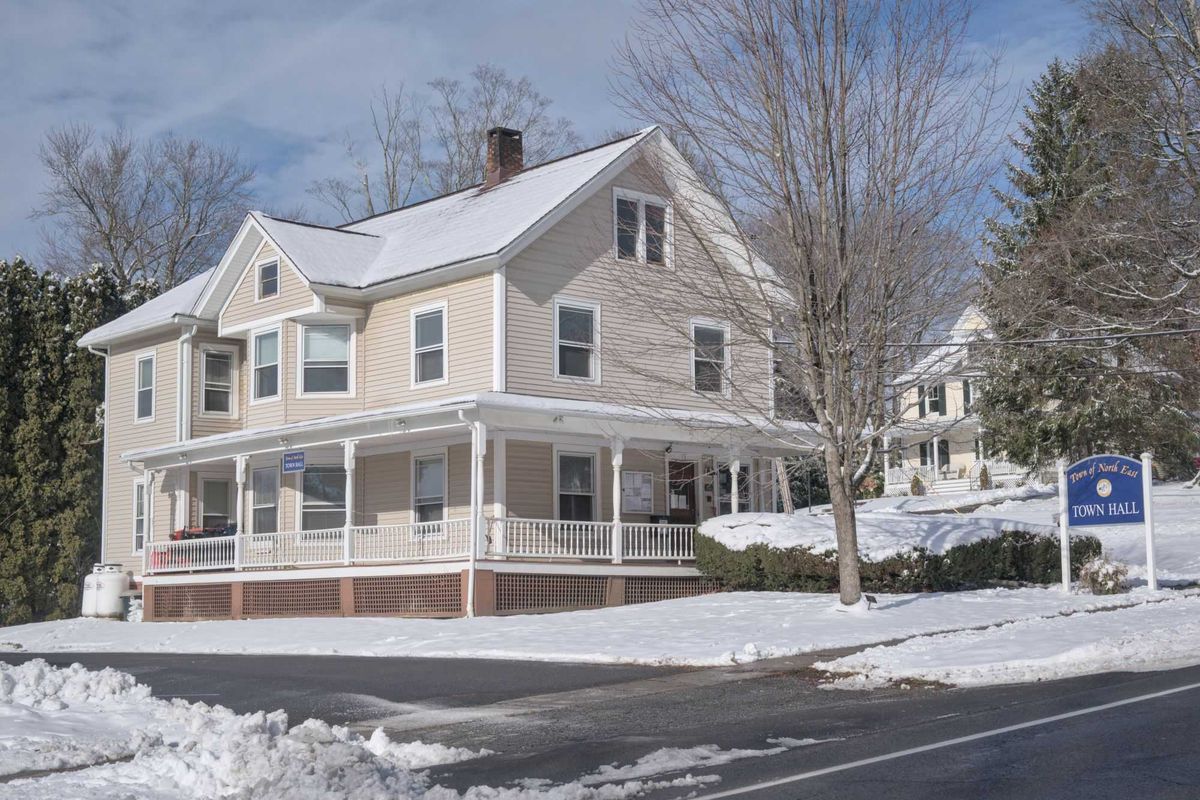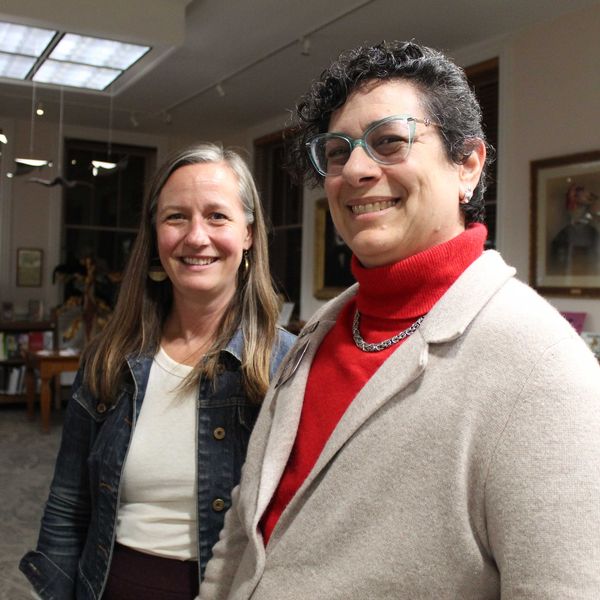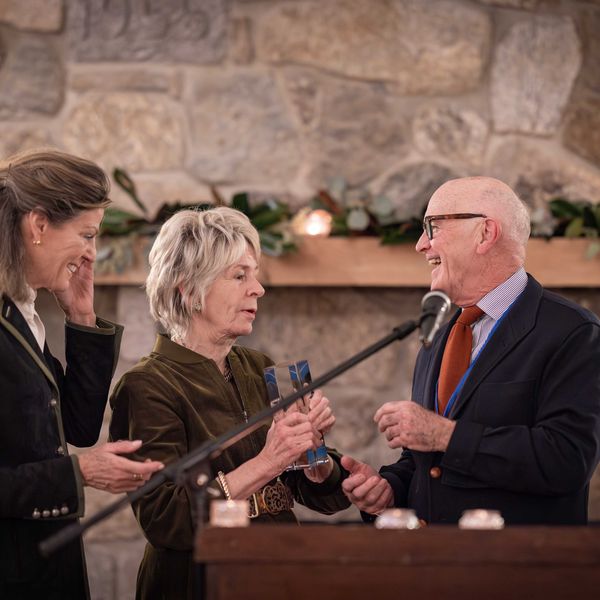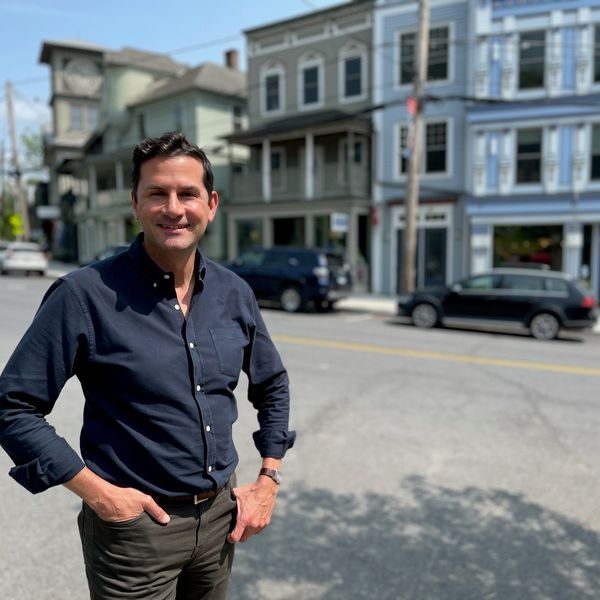Latest News
North East Town Hall in Millerton, where officials continue to discuss updates to the town’s zoning code.
By Nathan Miller
MILLERTON — Planning Board members raised a mix of broad and detailed concerns about the Town of North East’s proposed zoning plan during a special meeting on Wednesday, Dec. 3 — their final discussion before the public hearing set for Jan. 8.
The 181-page draft plan represents a rewrite of the town’s decades-old zoning code, updating definitions, commercial use rules, and standards for parking, lighting and design. Town officials say the overhaul is meant to eliminate inconsistencies and give applicants and reviewers a clearer, more functional set of rules.
At Wednesday’s meeting, Planning Board members offered comments that ranged from line-by-line concerns to questions about how cohesively the document functions as a whole.
Planning Board member Dan Sternberg offered the widest critique. “I think as a whole, this draft is not well drafted. I think as a legal document — as a piece of legislation — it’s got a lot of problems. It reads like something drafted by committee.”
Sternberg suggested the document should be considered more holistically, and the language of the proposed draft should be more consistent and clear.
He said lifting examples of codes from other towns likely contributed to the disjointedness of the draft. “The language used in it may not be consistent with some of the language of the rest of our code,” Sternberg said. “I’ve read lots and lots of agreements, lots and lots of legislation over the years, and seeing the drafting process, I can tell that this was kind of stitched together.”
Board members appeared reluctant to scrap the draft outright, arguing that doing so would dismiss several years of work by volunteers and consultants. Instead, they expect to recommend that the Town Board focus on clarifying sections where the language is not clear.
Planning Board member Bill Kish, who served on the Zoning Review Commission that drafted the commercial zoning overhaul, offered a defense of the draft.
Kish emphasized that nothing in the draft was borrowed casually. He said that anything that was borrowed was the subject of at least one full meeting and it was discussed again. “This is about as good as you can get using the process that we had,” Kish said. “That’s all I can say.”
Nevertheless, Planning Board Chair Dale Culver said he agreed with Sternberg's criticism. "I'm never in favor of lifting other towns' codes that are a long ways from our town," Culver said. "Because we tend to get their slant of their view for their code for their town. And our town may be different. It quite often is."
It remained unclear at the close of the meeting whether Sternberg’s broader criticism would be included in the Planning Board’s formal memo to the Town Board. The implications are significant: if the critique is included, it signals that the full board believes the draft needs broader revision. If it is not included, the Town Board receives a narrower set of recommendations, and Sternberg’s concerns will arrive only through his individual memo.
Board members did have consensus on other comments that will be included in the board's memo. Board member Leslie Farhangi requested that the phrase "cage-type poultry" be removed from the draft entirely.
Farhangi also recommended — and the board agreed — that approvals should include an expiration date. Board members noted that a plan could be approved and then remain unbuilt for years, while the town changes.
The Planning Board's memo has not yet been drafted as of press time. Planning Board members were also encouraged to submit individual letters to the Town Board expressing any concerns that the board didn't have consensus on.
"We can't have it be all unanimous consent," Culver said. "Because if that's the case, are we all thinking or are we just listening and agreeing?"
Keep ReadingShow less
Classifieds - December 4, 2025
Dec 03, 2025
Help Wanted
CARE GIVER NEEDED: Part Time. Sharon. 407-620-7777.
SNOW PLOWER NEEDED: Sharon Mountain. 407-620-7777.
Weatogue Stables has an opening: for a part time or full time team member. Experienced and reliable please! Must be available weekends. Housing a possibility for the right candidate. Contact Bobbi at 860-307-8531.
Services Offered
Deluxe Professional Housecleaning: Experience the peace of a flawlessly maintained home. For premium, detail-oriented cleaning, call Dilma Kaufman at 860-491-4622. Excellent references. Discreet, meticulous, trustworthy, and reliable. 20 years of experience cleaning high-end homes.
Hector Pacay Service: House Remodeling, Landscaping, Lawn mowing, Garden mulch, Painting, Gutters, Pruning, Stump Grinding, Chipping, Tree work, Brush removal, Fence, Patio, Carpenter/decks, Masonry. Spring and Fall Cleanup. Commercial & Residential. Fully insured. 845-636-3212.
The Villas Cleaning Team: Owner-Operated. Reliable, detailed cleaning by a trusted husband-and-wife team. Homes & Offices. Airbnb. Small Post-Construction. Commercial. Windows. Laundry. Consistent cleaners every time. Competitive rates. Flexible scheduling. Call/Text: 903-918-2390. Dave Villa for a free estimate.
Auctions, Estate Sales
Estate/Tag Sale: 168 Johnson Road, Falls Village CT. Friday Saturday Sunday, December 5th-7th. Total house contents, furniture, antique and vintage collectables, costume jewelry, shed stuff, basement stuff, stairs chairlift, some art. Fri, Sat 9-4 and Sunday 9-noon. A Tommy sale, come and get it!!
Real Estate
PUBLISHER’S NOTICE: Equal Housing Opportunity. All real estate advertised in this newspaper is subject to the Federal Fair Housing Act of 1966 revised March 12, 1989 which makes it illegal to advertise any preference, limitation, or discrimination based on race, color religion, sex, handicap or familial status or national origin or intention to make any such preference, limitation or discrimination. All residential property advertised in the State of Connecticut General Statutes 46a-64c which prohibit the making, printing or publishing or causing to be made, printed or published any notice, statement or advertisement with respect to the sale or rental of a dwelling that indicates any preference, limitation or discrimination based on race, creed, color, national origin, ancestry, sex, marital status, age, lawful source of income, familial status, physical or mental disability or an intention to make any such preference, limitation or discrimination.
Tag Sales
Sharon, CT
TAG SALE: SATURDAY, DECEMBER 6, 10:00 AM - 2:00 PM, 135 Sharon Mountain Road, Sharon, CT 06069. Clearing things out before the holidays! Stop by for a great mix of items, including: Kitchenware, Small pieces of art, A few pieces of furniture, Clothing, Books, And more assorted household items. Easy to find, everything priced to sell. Hope to see you there!
Keep ReadingShow less
Legal Notices - December 4, 2025
Dec 03, 2025
Legal Notice
Notice of Formation of Studio Yarnell LLC
Notice of Formation of Studio Yarnell LLC. Articles of Organization filed with the Secretary of State of New York (SSNY) on October 20, 2025. Office location: Dutchess County, NY. SSNY has been designated as agent of the LLC upon whom process against it may be served. SSNY shall mail a copy of any process to: 279 McGhee Hill Road, Millerton, NY 12546. Purpose: Marketing consultancy.
11-13-25
11-20-25
11-27-25
12-04-25
12-11-25
12-18-25
Legal Notice
Notice of Formation of a Limited Liability Company (LLC). The name of the LLC is: Kim’s Business LLC. Articles of Organization were filed with the Secretary of State of New York (SSNY) office on: 11/8/2025. The County in which the Office is to be located: Dutchess. The SSNY is designated as agent of the LLC upon whom process against it may be served. The address to which the SSNY shall mail a copy of any process against the LLC is: 420 Quaker Hill Rd Pawling, NY 12564. Purpose: any lawful activity.
11-20-25
11-27-25
12-04-25
12-11-25
12-18-25
12-25-25
Legal Notice
Notice of Formation of DULCIFY LLC Art. Of Org. filed with SSNY on 09/04/2025. Office Location: 56 South Center Street, Millerton, Dutchess County, NY 12546. SSNY designated as agent of the LLC upon whom process against it may be served. SSNY shall mail process to the Dulcify LLC, 56 South Center Street, Millerton NY 12546.Purpose: Any lawful purpose.
11-27-25
12-04-25
12-11-25
12-18-25
12-25-25
01-01-26
Legal Notice
PLEASE TAKE NOTICE that the Pine Plains Town Board will hold a Special Meeting on December 10, 2025, at 6:00 pm. Said meeting will be held at the Community Center, 7775 Rte.82, South Main Street, Pine Plains, NY 12567. Purpose of the meeting is a public forum about the New Town Hall. The meeting is open to the Public. Dated: November 20, 2025.
BY ORDER OF THE TOWN BOARD
Madelin Dafoe
Town Clerk
12-04-25
NOTICE OF
PUBLIC SALE OF
PERSONAL PROPERTY
GLOBAL SELF STORAGE
Notice is hereby given that the undersigned self storage unit(s) will be sold at a public sale by competitive bidding, in their entirety to the highest bidder, on or after December 26th, 2025, to satisfy the lien of Global Self Storage for rental and other charges due from the undersigned. The said property has been stored and generally described below is located at the respective address. Although, the auction will be held via www.StorageTreasures.com, the sale is made in person at the facility: 3814 Route 44, Millbrook, NY 12545.
Friday, December 26th, 2025
#224 Eva Mort
The terms of the sale will be cash only & must be paid for at the time of sale. All goods are sold as is. Global Self Storage reserves the right to withdraw any or all units from the sale at any time. All contents must be removed within 72 hours or sooner.
12-04-25
12-11-25
PINE PLAINS
TOWN BOARD
NOTICE OF
PUBLIC HEARING
PROPOSED INCREASE IN WATER RATES AND FEES FOR THE PINE PLAINS WATER IMPROVEMENT AREAS
PLEASE TAKE NOTICE that the Pine Plains Town Board shall hold a public hearing on December 18, 2025 at 7:00 p.m. at the Pine Plains Town Hall, located at 3284 Route 199, Pine Plains, New York, on the proposed increase in water user rates and fees for services of the Pine Plains Water Improvement Areas. The proposed water user rates shall be increased from the current minimum usage fee of $45.00 to $50.00 for the first 9,000 gallons recorded, and from $5.80/1,000 gallons to $6.20/1,000 gallons recorded over the initial 9,000 gallons recorded. The purpose of these rate increases is to offset substantial increases in electricity, materials and supplies to operate and maintain the Pine Plains Water Improvement Area Water System. Any person wishing to be heard shall be given an opportunity to do so at said public hearing. A copy of the proposed rate change will be available for inspection at the Town Clerk’s office at regular business hours. Dated: November 20, 2025.
BY ORDER OF THE PINE PLAINS TOWN BOARD
MADELIN DAFOE,
Town Clerk
12-04-25
Keep ReadingShow less
‘Les Flashs d’Anne’: friendship, fire and photographs
‘Les Flashs d’Anne’: friendship, fire and photographs
Anne Day is a photographer who lives in Salisbury. In November 2025, a small book titled “Les Flashs d’Anne: Friendship Among the Ashes with Hervé Guibert,” written by Day and edited by Jordan Weitzman, was published by Magic Hour Press.
The book features photographs salvaged from the fire that destroyed her home in 2013. A chronicle of loss, this collection of stories and charred images quietly reveals the story of her close friendship with Hervé Guibert (1955-1991), the French journalist, writer and photographer, and the adventures they shared on assignments for French daily newspaper Le Monde. The book’s title refers to an epoymous article Guibert wrote about Day.
On Dec. 11, at 6:30 p.m., at the White Hart Inn in Salisbury, Day and Weitzman will share their memories in a conversation moderated by noted designer Matthew Patrick Smyth. The event is organized by Oblong Books and the Scoville Library.
Fresh home from her exhibition and book signing in Paris, Day sat in her Salisbury aerie high above the distant hills, her daughter’s black cat on her lap. She told the story of “Les Flashs d’Anne,” and the kismet that spurred its evolution.
In 2024, afterlearning that Day had worked with Guibert in New York and Paris, Weitzman — the author of numerous books about Guibert —saw her salvaged images, sought her out and announced, “We must do a book together.”
Weitzman writes in the book’s prologue, “This book is the dreamlike, uncanny result of that serendipitous encounter with a remarkable woman.”

During the 1980s, Day was a working photographer living on Fifth Avenue. A friend, the editor of Le Monde, asked whether Guibert, on his maiden voyage to New York, could stay with her. “I remember it was a cold night when Hervé showed up at my door,” she said.“His flight had just gotten in from Paris and he had this big box of Guerlain perfume. It was wrapped in beautiful pink paper. Within four minutes, we were friends.”
Thus began a whirlwind collaboration that took them from Manhattan, where they interviewed André Kertész, to Paris where they dined with Henri Cartier-Bresson and Duane Michals, and on to interviews with Isabelle Huppert, Gina Lollobrigida, designer Madeleine Castaing, Orson Welles and other luminaries of that time.
Day never saw Guibert after 1983. “Hervé got AIDS in the late ’80s and was quite militant. He now has a following of young people,” Day saidwistfully. During his final days, Guibert wrote five books based on his existential journey.

Day recalled the devastating house fire in which her family tragically lost their friend Maria Paz Reyes and their dog. Day survived by jumping from the second story. A lifetime of images, negatives and slides were lost or damaged. “To lose pictures is like losing friends. Everything was piled into metal file cabinets in my studio. All my negatives and slides were packed in tight. The fire started at the farthest point from there as possible. It was the only thing that wasn’t destroyed— every other single thing was gone. Nothing left. It was raining, so my friend Christopher covered everything with a tarp. The fabulous part of this story is how much help I had from my town, which gave me the empty firehouse to lay out everything to dry. Friends came from near and far to help. Some days I had ten volunteers, and it went on for a month, which gave me something to move forward with. It was so tragic and awful.”

A veteran photojournalist, portrait, wedding, and architectural photographer, Day created images for five books featuring the architecture of the Library of Congress, the U.S. Capitol, and the New York Public Library. She covered events in Cuba, Haiti and South Africa, where she took an iconic image of Nelson Mandela emerging from his prison cell. Her commissioned images of four Presidential Inaugurations are featured in the Smithsonian. Her work has appeared in Newsweek, Time, The New York Times, The Washington Post, Fortune, Paris Match and Vogue. She was the editor of Compass at the Lakeville Journal and The Millerton News.
Currently, she enjoys shooting digital photographs of nature. “I am interested in migration, large groups of birds and insects. I’ve been to New Mexico to photograph monarchs, Nebraska to photograph Sandhill cranes, and Ireland to photograph a murmuration of starlings.”
Day summed up her life: “Things just happened to me.”
Tickets to the event at The White Hart Inn on Dec. 11 are available at oblongbooks.com
Keep ReadingShow less
loading

